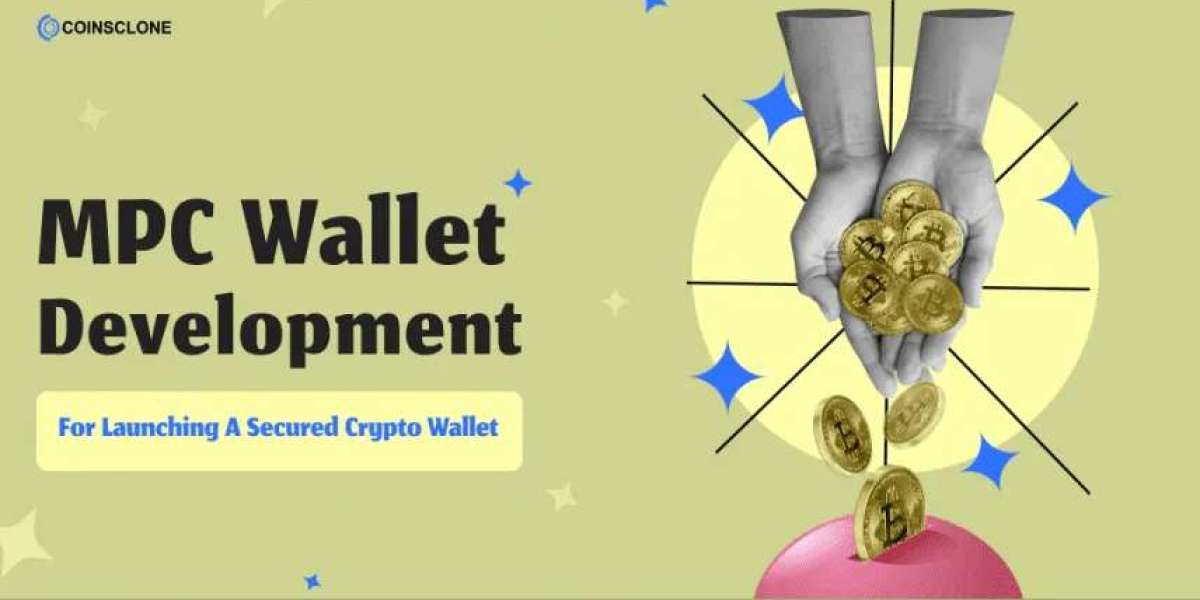As blockchain technology matures, startups and entrepreneurs are increasingly exploring crypto payment gateways to modernize transactions and expand their user base globally. However, the primary concern remains — security of digital assets. That’s where MPC (Multi-Party Computation) wallet development comes into play.
MPC wallets offer a next-generation solution for secure, decentralized crypto custody, without relying on traditional private key mechanisms. If you're building a crypto product — especially a payment gateway — understanding and implementing MPC wallets can help future-proof your startup from both technical and security standpoints.
What is an MPC Wallet?
An MPC (Multi-Party Computation) wallet is a type of crypto wallet where the private key is never created in a single place. Instead, it’s split into multiple key shares held by different parties or devices. These shares collaboratively sign transactions without revealing or reconstructing the full private key at any point.
This differs from traditional wallets (hot, cold, or hardware) where a single point of failure (the private key) can compromise the entire wallet.
For startups launching any crypto-related platform, MPC wallet creation eliminates the risks of key theft or loss, offering robust security while maintaining usability.
Why Startups Should Choose MPC Wallets?
Startups often operate in fast-paced, competitive environments, where security breaches can destroy trust and business value overnight. Here's why MPC wallets are ideal:
- Enterprise-grade Security: MPC reduces attack vectors by eliminating the concept of a single private key.
- Decentralized Custody: Ideal for distributed teams or multi-signature needs, without the complexity of traditional multisig wallets.
- Regulatory Compliance: MPC aligns better with evolving compliance frameworks that require enhanced key management.
- User Trust: Stronger security builds user confidence, critical when processing crypto payments.
If you're offering any crypto related transaction business model, MPC’s security model can be a strong differentiator for your brand.
Core Features of an MPC Wallet for Integration
To serve startups and payment businesses effectively, an MPC wallet should include:
- Key Sharding: Cryptographic splitting of private keys across nodes/devices.
- Threshold Signing: Transactions only require a minimum number of shares (e.g., 2 out of 3) to sign, adding flexibility.
- Device Authentication: Supports face ID, biometrics, or OTP-based approval for end-users.
- Backup & Recovery Mechanisms: Even if one node is compromised or lost, funds remain secure.
- API Integration: Seamless plug-in with crypto payment gateways for real-time transaction handling.
These features ensure low friction onboarding and bank-grade asset security for startups scaling into the crypto space.
Cost and Time Advantages for Entrepreneurs
MPC wallets may seem complex, but modern development frameworks make them surprisingly cost-effective. For startups:
- Faster Deployment: SDKs and APIs reduce dev time.
- Cloud-Native: Can be hosted securely on existing cloud infrastructure.
- No Hardware Dependency: Unlike hardware wallets, there’s no upfront device cost.
- Easy Scaling: Add new users or key shares without redesigning your wallet logic.
When integrating with any crypto business model, you can achieve enterprise-level security without breaking the bank — a key factor for bootstrapped entrepreneurs.
Partnering with the Right Development Team
Developing an MPC wallet isn’t just about coding cryptography. It requires deep knowledge of:
- Cryptographic algorithms (like Threshold ECDSA)
- Blockchain networks (Bitcoin, Ethereum, Solana, etc.)
- Backend integration (Node.js, Go, Rust, etc.)
- Wallet UX/UI that works for real users
That’s why many startups choose to outsource MPC wallet development to specialized crypto wallet development team with proven experience in payment gateway infrastructure.
If you're planning to launch a secure and flexible crypto payment system, MPC wallets should be at the core of your tech stack. The future of digital transactions is decentralized, and MPC makes sure it’s secure too.



